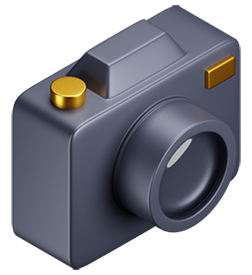The book “The Obstacle is the way” by Ryan Holiday is based on the school of philosophy known as Stoicism which helps to lay the foundation of overcoming the obstacles and turning them into opportunities to achieve the goals without falling into disperse or remorse by the great examples of ancient heroes and leaders with the help of perception, action and will.
What is Stoicism?
Stoicism is an ancient Greek philosophy that comes from Rome in the early 3rd century BC and it is founded by Zeno of Citium (Cyprus). It is a philosophy that focuses on several virtues such as wisdom, justice, courage, and moderation.
Stoic : someone who remains calm under pressure and avoids emotional extremes.
The Core Teaching of Stoicism(The dichotomy of control)
The Stoics practices the understanding of certain things which are within our control or influence and some are not within a given situation which lays the basic framework for the philosophy.
The Two great Philosophers of Stoicism
Stoicism is a timeless idea that has been shaped by many philosophers over time such as Chrysippus, Zeno, Cleanthes, Artiston, Apollonius, Junius, Rusticus, Epictetus, Musonius Rufus even though there are two philosophers who considered to be the two greatest stoics.
Lucius Annaeus Seneca (4AD – 65AD)
As a Stoic philosopher and Statesman who became one of the most influential figures of the Roman Imperial Period. Seneca makes a lasting contribution to Stoicism. He occupies a central place in the literature on Stoicism at the time and shapes the understanding of Stoic thought that later generations were to have.
The good things of prosperity are to be wished; but the good things that belong to adversity are to be admired.
-Seneca
Marcus Aurelius (121 AD – 180AD)
Growing up, Marcus Aurelius was a dedicated student, learning Latin and Greek. He was the last of the rulers known as the Five Good Emperors ( They created the time of prosperity for the Roman empire ) but his greatest Intellectual interest was Stoicism.
Our actions may be impeded… But there can be no impeding(prevent) our intentions or our dispositions. Because we can accommodate and adapt. The mind adapts and converts to its own purposes the obstacle to our actions and, Marcus concludes his words with the following powerful lines which even to this very day made an impact on many.
The impeding to action advances action. What stands in the way becomes the way.
The author believes the secret art of turning obstacles upside down can be found in the lines.
The Obstacles That Lie infront of us
The author points out an old Zen story about a King where the people have grown soft and entitled and the King tested them by placing a large boulder blocking the entrance to the city then he would hide and observe the people after people who came to this impediment turns away, After some time a peasant came along into the town and he didn’t turn away rather he scrambles into the nearby wood and crafted a branch with a lever and dislodge the rock from the road. Under the rock, the King has placed gold coins and a note which said:
“The Obstacle in the path becomes the path. Never forget, within every obstacle is an opportunity to improve our condition”
Most of the problems in the modern age are Internal but rather not external and the author points out it comes from technological disruption, consuming junk food and the tradition that tells us how we have to live.
The three Critical Steps to Overcome Obstacles
“Objective judgment, now, at this very moment.
Unselfish action, now, at this very moment.
Willing acceptance—now, at this very moment—of all external events. That’s all you need.”Marcus Aurelius
The ability to overcome obstacles/adversity is reproving to human happiness and suffering is part of the process but learn how to handle with enjoyment.
The author states to overcome obstacles via following three disciplines which starts with how we look and feel about the problem (attitude /approach/ perception) and then how we break them down and convert them into opportunities, Lastly, the Inner will and courage to overcome the difficulty are the three disciplines known as Perception, Action and Will.
(Part I) Perception
Focus on Objectivity, Most of the time whenever something bad happens to us we may say as “This happened, and it’s bad” whereas it resembles one idea. but it’s actually two separate claims (Two statements).
Choose not to be harmed -and you won’t feel harmed.
Don’t feel harmed-and you haven’t beenMarcus Aurelius
This Happened is Objective, It’s a true statement – it happened. “It is bad” is our perception, we have judged the event via applying our personal perception whereas we have turned the objective event into a subjective assessment. We are not in control of the first part but we are in control of the second part (perception) via changing the perception.
According to the author, perception holds two definitions.
- Context: a sense of the larger picture of the world, not just what is immediately in front of us.
- Framing: an individual’s way of looking at the world, a way that interprets its events.
The author describes that George Clooney spent the first years getting rejected at auditions because he wanted the producers to like his acting but the producers didn’t want to disappoint or hurt him but later on he started to realize that he needs to see the casting from their perspective but not from his, whereas he understood that the casting director is seeking for a role that he may deliver it in different situations hence, the actor made an emphasis on choosing the correct perspective and understood what the casting crew expects and he becomes the solution.
To interpret the perspective you must focus on what you can change? That’s where a two-thousand-year stoic phrase comes in “ta eph‘hemin, ta ouk eph‘hemin.” which translates into What is up to us, what is not up to us.
Focusing on the things that are within our control expands or magnifies our power. Worrying over things outside of our control drains our power. Stop worrying over the things that you can’t control – accept it and don’t worry about it, so purely focus, put effort and find peace on the things that you can influence.
(Part II) Action
In Cricket, To score more or to hit a boundary one must take the bat and give a swing therefore, you’ve got to start in order to get anywhere Action is about being consistent and focusing on the process.
Not any kind of action will help you to overcome obstacles but Directed Actions. Everything must be done in the service of the whole. Step by step, action by action. Once you start to work on an obstacle, thinking of quitting is not an option and For an Effective action you should possess courage, deliberation, boldness and persistence in order to overcome the obstacle
The second part unlatches with the story of one of the greatest orators of History known as Demosthenes. He was sickly and frail as a kid with a nearly debilitating speech impediment When he was 7 years old he lost his father. The fortune left by his father was stolen by the guardians assigned to protect him and he lost everything. He was the awkward kid nobody understood, who everyone laughed at. But he did something about it. To overcome his speech impediment, he would fill his mouth with pebbles and practice speaking. He rehearsed full speeches into the wind or while running up steep inclines. He even locked himself underground in a dugout he’d built to study and educate himself. All this training aimed at one goal to win back what he inherited from his father via facing off his enemies in court. Which he did and later he is known as one of the greatest orators of Athens.
As some academic once asked him what are the three most important traits of speechmaking are, his reply says it all: “Action, Action, Action!”
The author highlights that the process should be in an ordered way whereas It keeps our perceptions in check and our actions in sync.
He further narrates, We are A-Z thinkers, fretting about A, obsessing over Z, yet forgetting all about B through Y. As per the author you are not really worrying about the outcome but rather the process very carefully.
(Part III) WILL
Will is the internal power that can never be affected by the outside world and it’s our final trump card. Even with Perception and Action, you will still face unexpected trials in life. To endure and prevail, you must harness the will to confront obstacles over and over. It’s about knowing that you can/will fail, yet taking the right consistent actions regardless of whatever the obstacles are.
The stoic used to practice what is known as Pre meditating Adversity It’s about putting ourselves in the shoes of something bad happening to us so that if it does happen we are more prepared for it. so to strengthen the inner citadel is by accepting the fact that we can’t control the things that aren’t in our control.
Inner Citadel: The fortress inside of us that no external adversity can ever break down. So we are not born with an inner citadel rather it must be built and strengthened over time. so during difficult times, we can depend on it. by protecting the inner fortress so it may protect us.
The 16th president of the United States, Abraham Lincoln faced many obstacles in his life. He had to struggle with the loss of both his mother and the woman he loved, poverty, educate himself, manage politics, depression, civil war and the fight against slavery. Through it all, he shouldered his burdens, found meaning in his struggles, and willed himself to keep going on and on. In fact, Lincoln’s own suffering made him a more compassionate person. His favorite line was, “This too shall pass”.
He perfected the Inner Will to fight against anything at his disposal.
No one is born a gladiator. No one is born with an Inner Citadel. If we’re going to succeed in achieving our goals despite the obstacles that may come, this strength in will must be built.
Ryan Holiday
In grasping these three disciplines we can overcome any obstacle upside down. we see opportunity in the darkest times, learn to strengthen our inner citadel and break the barriers with the stronger will. It will not be easy, but we are prepared and can give it everything.
.png)




